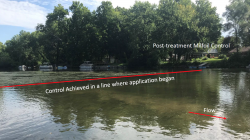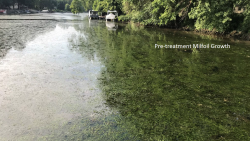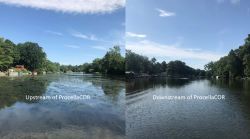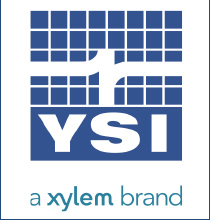FROM Aquatechnex, GOLD SPONSOR OF 2018 WALPA CONFERENCE
Eurasian water milfoil has long been the major invasive aquatic weed threatening the Northwest’s lakes and river systems. In recent years, hybrid strains of milfoil are starting to appear, and yellow floating heart is an expanding problem. To a lesser degree, parrotfeather and water primrose are problems locally in the region. While there are a number of technologies available to combat these species, water resource managers have needed a tool that works in high water-exchange environments and that addresses hybrid strains of milfoil.
In February 2018, the US EPA certified registration of a new aquatic herbicide, ProcellaCOR. This is one of the new “reduced risk” herbicides that EPA is moving to the field. To meet this registration criteria, the product must have a very clean environmental profile and be a better fit than some of the traditional products available for use. ProcellaCOR has been approved for use in potable water reservoirs with no restriction on the use of the water supply, has no restriction on the use of treated water on turfgrass and has much shorter irrigation restrictions than many of the other products available. ProcellaCOR is a systemic, selective herbicide that can be used to target these invasive species without impacting most native species. It also has the fastest rate of plant uptake of any of the currently registered aquatic herbicides–meaning it can be used effectively in very high-water exchange environments, including river systems, impacted by these plants.
Throughout 2018, our team has begun to use this technology to deal with invasive species. We have performed several operational control programs in Montana, Idaho, and Oregon targeting Eurasian water milfoil and parrotfeather. We have seen excellent results and no regrowth of the targeted plants. At North Carolina State University, we have funded a study of ProcellaCOR and other systemic herbicides against hybrid strains of milfoil from Washington’s Loon Lake with 100% control at all rates tested. We also joined a team of federal, state and local researchers performing operational-scale trials on the Pend Oreille River in North Idaho against Eurasian water milfoil and again observed excellent results during the season of treatment. We will be excited to get back and review one-year post-treatment results this summer.
In Washington State, the Department of Ecology had to amend the statewide General NPDES Permit to add ProcellaCOR and some additional products such as Phoslock. The agency has indicated that this permit will be ready for operational use on July 5, 2019 and we look forward to expanding the use of this technology.
ProcellaCOR treatments can come with a three-year warranty from the manufacturer in many cases. To be eligible, some fairly extensive mapping must be performed to document conditions, treatment areas have to be larger than 10 acres, and the program must be approved by SePRO (www.sepro.com).
For more information, contact tmcnabb@aquatechnex.com












